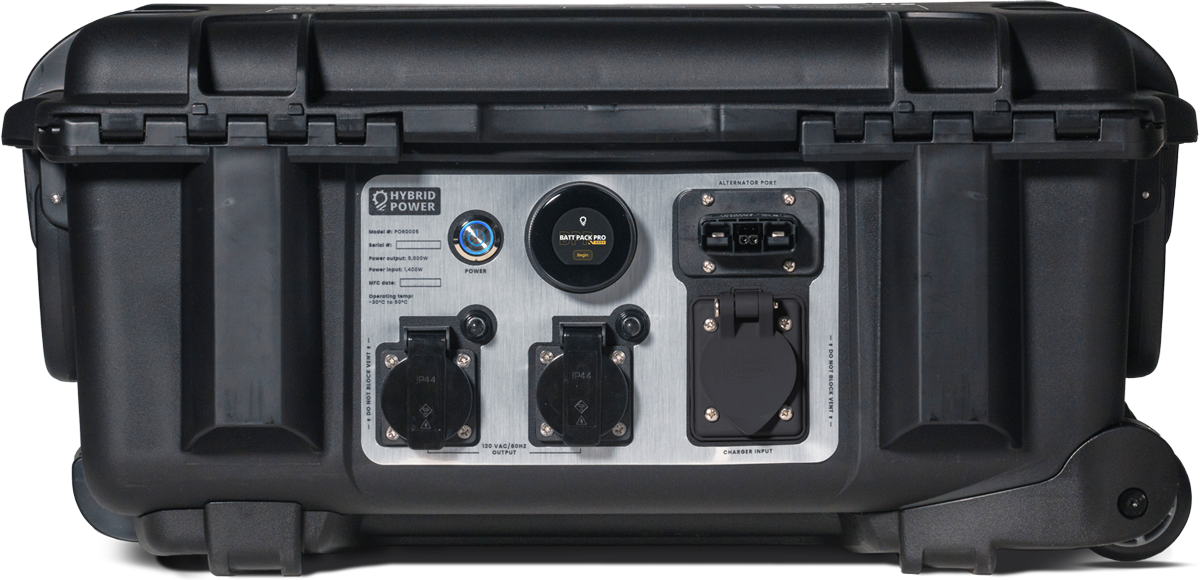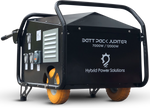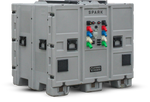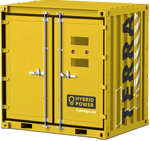Products
Explore our range of robust, reliable power solutions designed for industrial applications. Whether you need portable power for remote job sites or backup power for critical operations, our products deliver consistent performance in any environment.
Our Mobile Hybrid MicroGrid solutions combine portability with high energy capacity, making them ideal for large-scale, remote, and off-grid applications. These systems provide continuous power with minimal environmental impact.
Featured!

Top Power Solutions for Drones
Our Batt Packs are designed to extend drone flight times, powering both tactical and commercial missions with minimal downtime. Explore solutions for high-Wh military, law enforcement, and agricultural drones.
Resources
Access comprehensive resources including user manuals, product brochures, and technical specifications for each product.
Stay updated with the latest insights, tips, and industry news related to our products and services.
Join us at upcoming events and trade shows to see our products in action and meet our team.
HPS powers tough equipment in tough environments—hear it from our clients.
Featured!

Top Power Solutions for Drones
Our Batt Packs are designed to extend drone flight times, powering both tactical and commercial missions with minimal downtime. Explore solutions for high-Wh military, law enforcement, and agricultural drones.
Powering Construction Efficiently: Batt Pack Pro's Impact on Remote Job Sites
Remote Residential Construction Crew

Batt Pack Pro | 5kW
View product page5,000W
7,000W (500ms),
10,000W (10ms)
Residential Construction
5-8 people
Remote, unserviced area
8-10 hours

Challenge
Operating in unserviced areas requires a reliable power source for extended workdays. Traditional fuel-based solutions, while effective, posed several challenges:
- High fuel costs ($15-$25/day at $1/L).
- Noise pollution impacting worker comfort.
- The need for overnight or quick power replenishment after shifts.
Solution
The Batt Pack Pro was deployed to power a variety of essential tools and equipment.
Tools Powered
-
Power Tools:
- Bosch rotary hammer drill
- Bosch 9'' grinder
- 10'' Worm Gear Skill Saw
- 7.25'' Skill Saw
- Milwaukee 12'' chop saw
-
Construction Equipment:
- 1/9 cy concrete mixer
- Dewalt 10'' table saw
- Titan XT550 paint sprayer
-
Charging Systems:
- Dewalt Battery Box with:
- 1 x 60V charger
- 4 x 20V chargers
- Dewalt Battery Box with:
-
Other:
- Air compressor
Performance
- Daily Power Usage: 80-90% of the Batt Pack's capacity.
-
Recharging:
- Overnight at the shop.
- 3-5 hours via generator after shift.
- End-of-Shift Power Remaining: 10-20%.
Results
- Improved Worker Comfort: Silent operation significantly enhanced the on-site environment.
- Cost Savings: $15-$25/day saved on fuel.
- Seamless Integration: Supported all essential tools without interruption.
Feedback
Workers unanimously appreciated the silent operation, citing reduced noise pollution as a key benefit. The unit’s reliability ensured uninterrupted workflows and minimal downtime, making it a valuable addition to the remote construction site.
How can we help?
How can we Help?
Take our product finder quiz or let one of our power experts help you decide which product or system is right for you.
Subscribe to our newsletter
Take our product finder quiz or let one of our power experts help you decide which product or system is right for you.
 Batt Pack Energy | 3kW
Batt Pack Energy | 3kW Batt Pack Pro | 5kW
Batt Pack Pro | 5kW Batt Pack Jupiter | 7kW
Batt Pack Jupiter | 7kW Spark Cube | 12kW/24kW
Spark Cube | 12kW/24kW TERRA | 166kVA
TERRA | 166kVA